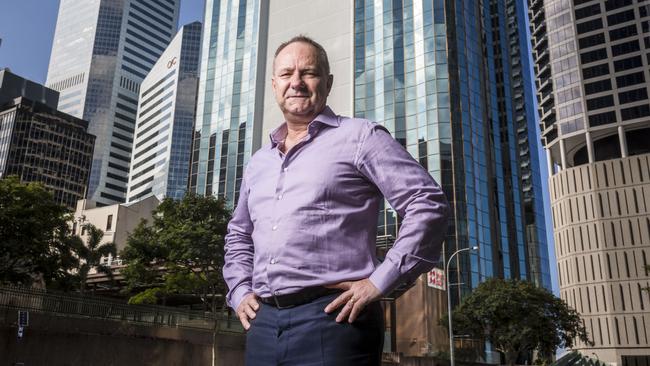Mining’s social licence under strain: Anglo American
Anglo American boss Mark Cutifani warns mining companies they must adopt ‘next-generation values’ if they’re to improve their public standing.

Mining’s social licence to operate is under “significant strain”, according Anglo American boss Mark Cutifani, facing with growing public pressure over climate change, technological change and resource industry corruption.
Mr Cutifani told the Mining Indaba conference in Cape Town late Monday that mining companies needed to adopt next-generation values and take a position of “responsible innovation” if it wants to improve its standing in the communities it operates.
“Despite mining’s clear contribution to almost every aspect of modern life – from food production to providing the materials that build our homes enable transport, enable clean energy and communication, improving the lives of billions of people – mining continues to face a crisis of reputation,” he said.
“We are still seen as an industry that takes more than it gives, even though we drive 45 per cent of the world’s economic activity, whether directly or indirectly, while disturbing a small fraction of the world’s surface – less than half a per cent.”
Mr Cutifani told the audience of mining investors and executives that none of the delegates present could possibly be oblivious to criticism of the industry, and must act as a whole – on climate change, transparency and corruption, and its approach to innovation and technology – if its reputation is to be repaired.
“We need to connect the future of mining with emerging and next- generation societal values. These are the values of increased transparency, responsible technological innovation, sustainability and shared prosperity,” he said.
Anglo American is a significant producer of thermal coal but Mr Cutifani said the industry needed to ensure that mining is “climate-smart, with ideally no or little negative climate impact”.
“Climate change is one of the defining challenges of our time. We cannot ignore or underestimate its global impact, and implications for every sector of the economy and human life as we know it today,” he said.
“There is, however, one point that gets lost in the debate, and that is the fact that the transition to a low carbon economy cannot happen without the products of mining.”
Mr Cutifani’s speech did not mention the company’s coal mining operations, but the Anglo American boss said the industry needed to make more of its position as the driver of the transition to a low carbon economy.
“I am encouraged by the progress we’ve made as an industry in not only reducing emissions but in also taking a more proactive stance in how we remodel our operations for a carbon-neutral future through, for example, displacing diesel power with stable, zero-carbon electricity or green hydrogen,” he said.
“Beyond the “mine gate”, the industry is thinking about the influence we can have to reduce emissions along the entire value chain – working with our suppliers, our peers and our customers where practical, to reduce global emissions.”
Mr Cutifani also said the industry needed to do more to police itself, and drive out the shonky operators that gave mining a bad name.
“Mining, like many other industries, is susceptible to a handful of those who want to cut corners – through illicit activities, unethically sourced minerals and a host of other corruption-related activities ranging from mining rights to permits. We cannot fold our arms and allow this to continue. We need to act,” he said.
He said the industry, and its customers, needed to do more to tack its products and their origin to assure the public the product supply chain was free of corruption and bad practice, and to reinforce the industry’s importance to every part of global life.
“In the end, this is all that matters: people. Our success as an industry is not only measured by the ounces, carats or tonnes we mine, but it is also measured whether we improve people’s lives. As our global population grows, we expect to see even higher demand for the minerals and metals that are essential to the products and services that power human progress,” he said.
“And while we may get the fundamentals right – of maintaining cost and capital discipline, mining more safely, sustainably and innovatively – we will not move the dial if we don’t connect these fundamentals of mining to the next generation values of increased transparency, responsible innovation, sustainability and shared prosperity.

